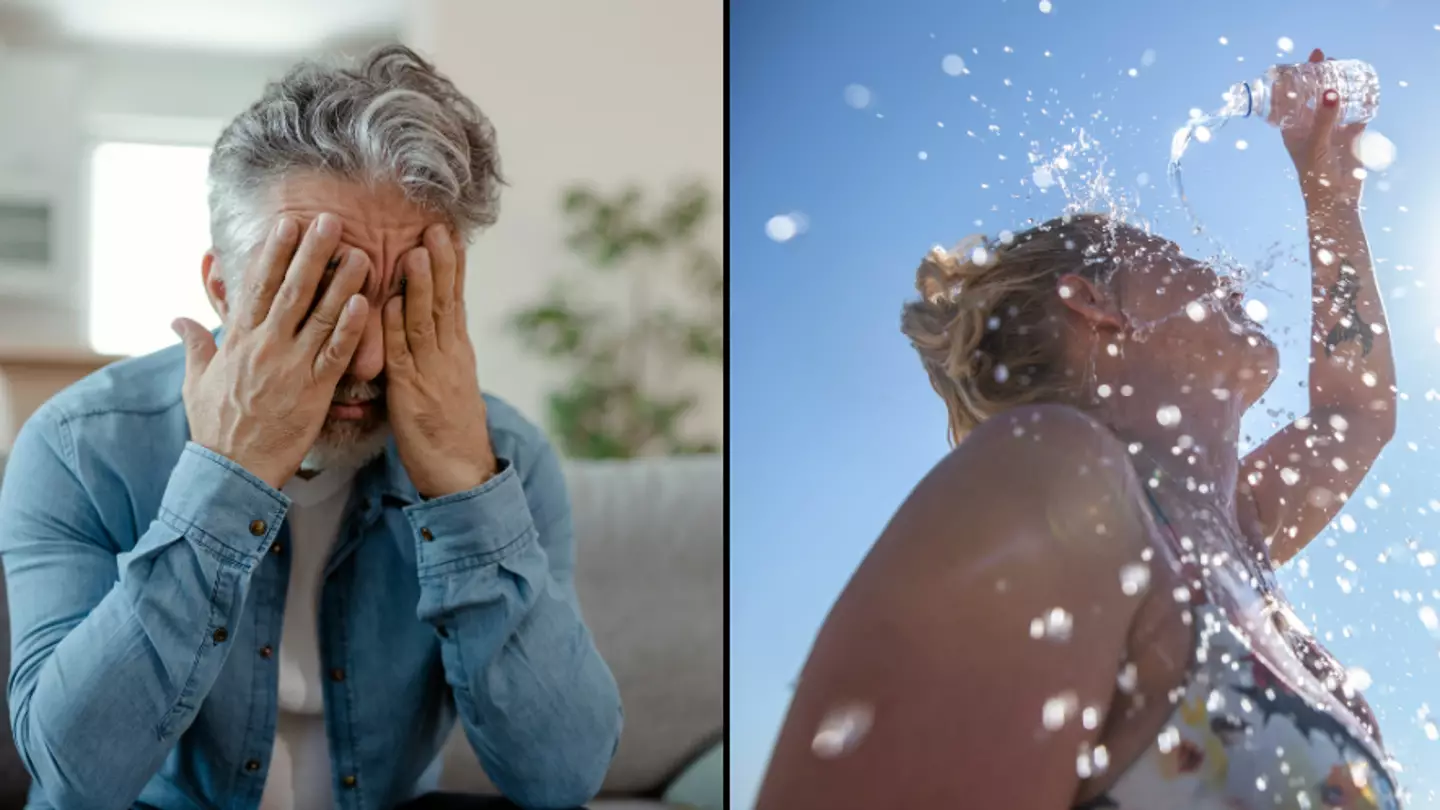
When the sunshine decides to make a rare appearance in the UK, it seems like all logic flies out of the window.
We're too busy prancing around in shorts and flip flops, sipping a few in beer gardens and sunbathing to our hearts content to care about anything else - but one thing you should never let slip your mind is protecting yourself in the sun.
Brits have been urged to stock up on suncream as some parts of the country are set to enjoy highs of up to 30°C this week, while also being reminded of handy hacks which can keep you cool when the temperature spikes.
Advert
But as well as following the usual protocol for a day in the sunshine, people have been warned they will need to keep a close eye on vulnerable people as the mercury soars.
Not everyone will fare well with the feverish heat, so the UK Health Security Agency (UKHSA) has introduced a 96-hour yellow heat-health alert, which came into force at 8am this morning (24 June).
It said that the heatwave will increase the risk of deaths among vulnerable people, especially for those in the East Midlands, the East of England, East Anglia and the South East.
These spots are set to get the hottest temperatures, but the warning is in place across everywhere except for the North East.
UKHSA said people should be prepared for 'significant impacts to be observed across the health and social care sector due to the high temperatures'.
It explained that they fear there may be an 'observed increase in mortality across the population likely, particularly in the 65+ age group or those with health conditions, but impacts may also be seen in younger age groups'.

As the NHS braces for an influx of patients being brought in with heat-related illnesses, it's important to be aware of the signs which may suggest that you have had a bit too much sun.
Despite the fact a lot of us have dealt with heat exhaustion and heat stroke in our lives, a refresher course on the red flags which often arise while you are suffering from these won't do you any harm.
It could also help you potentially save someone's life, as although the conditions don't require emergency medical attention, the situation can turn sinister if a person's high temperature isn't reduced within 30 minutes.
Heat exhaustion can quickly turn into heatstroke if you don't act fast, which needs to be remedied urgently.
If you are suffering from heat exhaustion, you may suffer from dizziness, headaches, nausea, weakness, muscle cramps, excessive sweating, fast breathing and fatigue.
You should cool yourself down as quickly as possible and drink lots of fluids to fix this.
However, things get taken up a notch if this turns into heatstroke - which can impact your mental faculties and be fatal.
According to the NHS, Brits need to be cautious if they feel any of these following symptoms and treat it as an emergency, as it indicates your body can no longer manage the heat and your core temperature is soaring too high.

Those suffering from heatstroke may experience:
- Feeling unwell after 30 minutes of resting in a cool place and drinking plenty of water
- Not sweating even while feeling too hot
- A temperature of 40C or above
- Fast breathing/heartbeat or shortness of breath
- Feeling confused
- Seizures
- Loss of consciousness
- Unresponsiveness
You should seek urgent medical attention if any of these persist.
The NHS also advise people to avoid exercise on extremely hot days, as this increases your risk of heat exhaustion or heatstroke, as well as not sitting in the sun for excessive periods.
To prevent these conditions, you should drink cold drinks, wear light and loose clothing, swerve the sun between 11am and 3pm and avoid excess alcohol.
Children, older people and people with long-term health conditions such as diabetes or heart problems are more at risk of heat exhaustion or heatstroke, so as we said earlier, keep a close eye on vulnerable people over the next four days.